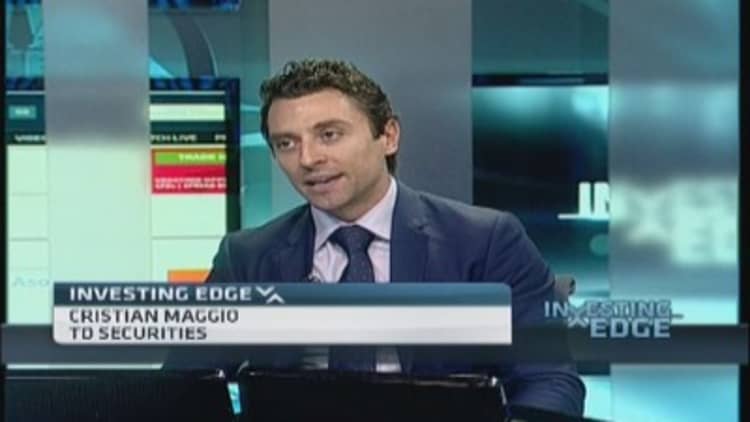Investors looking for the next political risk in asset markets have been focused firmly on Turkey, with local elections that could determine the country's political future taking place on Sunday.
The secular and democratic nation has become politicized and polarized in recent years with civil unrest joining a corruption probe at the heart of government. Prime Minister Recep Tayyip Erdogan has taken a hard line on protesters as well as banning Twitter and YouTube.
(Read more: Turkey blocks YouTube after Twitter ban)
Opinion polls suggest that this Sunday's local elections will be a close call with Erdogan's ruling Justice and Development Party (AKP) likely to get between 40 percent and 45 percent of the vote, beating the main opposition The Republican People's Party (CHP).
Here is a look at what's at stake:
Emerging problems for an emerging economy
A poor current account deficit and an over-reliance on domestic demand has meant investors are starting to reconsider whether to park cash in the country. The "tapering" of asset purchases by the U.S. Federal Reserve has also increased the strain on Turkey with U.S. dollars flooding back home in the hope of rate hikes.
In the last six months, the dollar has appreciated nearly 9 percent over the Turkish lira, the Borsa Istanbul 100 Index (XU100) has fallen by a similar margin and 10-year government bond yields have crept above the 11 percent level.
(Read more: Turkey, an emerging market dream turned into a nightmare)
For emerging market analysts, Sunday's ballot will be a key sign of Erdogan's legitimacy and his party's popularity ahead of presidential elections in August and parliamentary elections next year. It also offers investors two possible paths for the country, according to Tim Ash, head of emerging markets research at Standard Bank.
"(Erdogan) needs to do better than 40 percent, if he does that markets rally. Less and markets could be vulnerable," he told CNBC via email.
All eyes on Erdogan
A respectable performance by Erdogan would likely be seen as market-friendly given that investors seem to frown upon uncertainty. The political stability offered by the status quo is expected to push assets higher, according to analysts, despite worrying economic fundamentals persisting.

It would also mean Erdogan is likely to run for president, according to Wolfango Piccoli, managing director at Teneo Intelligence. This would be the first direct elections for Turkey's head of state and Erdogan would replace incumbent Abdullah Gul in the summer. The knock-on effect might be that the moderate and more market-friendly Gul would swap with Erdogen and assume the premiership, according to Nicholas Spiro, the managing director of Spiro Sovereign Strategy.
A contrarian view comes from analysts at Bank of America Merrill Lynch. They believe that markets have become too complacent over Sunday's elections and expect a strong result for Erdogan would make him stay as prime minister,
"Although we believe a stronger AKP performance will empower PM Erdogan and may pave the way for the government to make more controversial decisions that eventually could increase the political risk premium, market pricing seems to disagree with us," a fixed income strategy team at the bank, led by Alberto Ades, said in a note on Thursday.
Below 40 percent
On the other end of the scale, analysts warn that any alternative election outcome could cause Turkish assets to suffer. Spiro said that a poor showing for the AKP, and in particularly a loss in Istanbul, would inject yet more instability and possibly lead to a snap parliamentary election this year.
"Erdogan is going out of his way to test the resilience of Turkey's creditworthiness at a particularly dangerous time for EMs. Irrespective of the outcome of Sunday's election, the spectre of more Gezi Park-type unrest looms," he warned in a research note on Wednesday.
Piccoli agrees, suggesting that less than 39 percent share of the votes in the municipal polls would increase the risk of snap elections and would leave a weak majority of 60 percent in any future parliament.
Follow us on Twitter: @CNBCWorld


